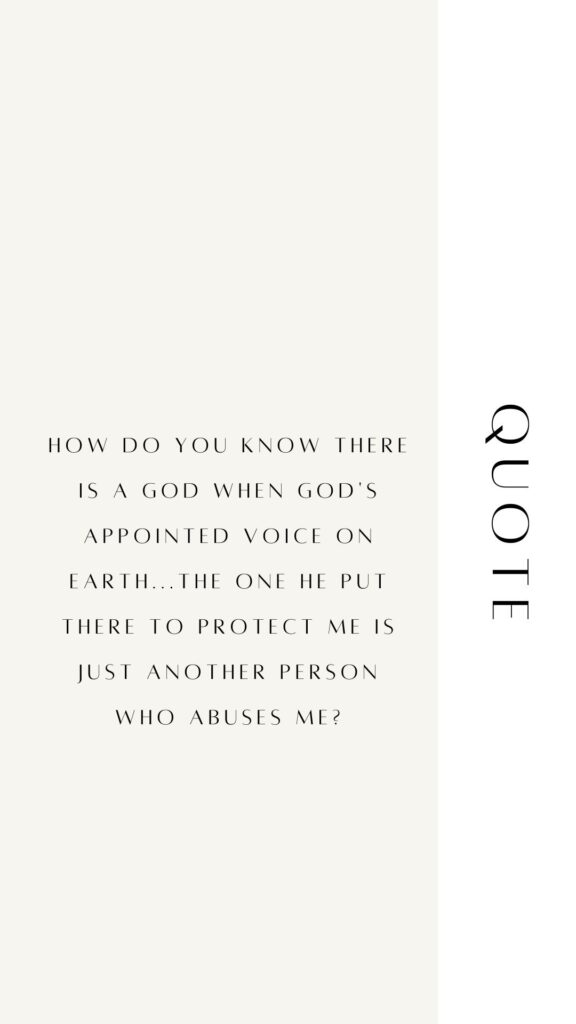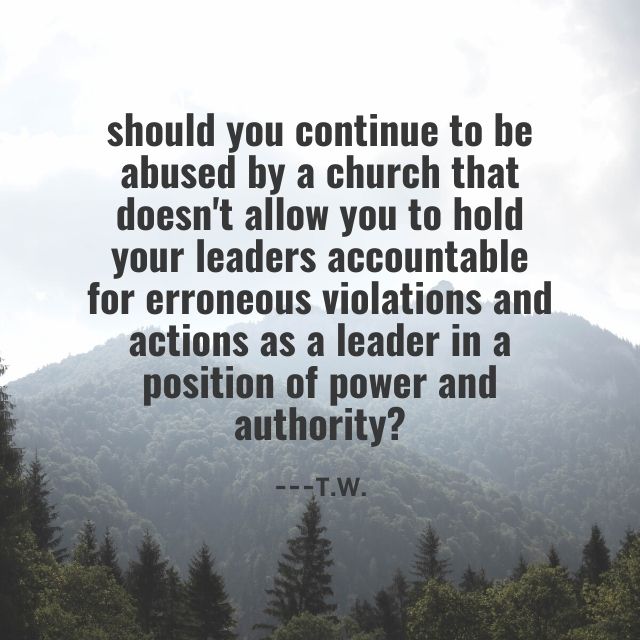Imagine walking into a courtroom and getting blindsided when you find your own clergy has written a character letter for your ex husband whose accused of violating his protective order and abusing you. How do you respond as a woman? What do you do? Warning: The story below mentions tough topics like religious trauma, clergy abuse and domestic violence.

What is Religious Trauma?
In short, religious trauma is the symptoms that come from a stressful or traumatic religious experience. A person who has gone through religious trauma may suffer from PTSD, nightmares, disassociation, flashbacks, anxiety, etc. While it isn’t recognized as a diagnosis in the DSM (diagnostic statistical manual of mental disorders) it has become more recognized by clinicians, therapists and counselors and groups and therapy geared towards religious trauma and faith transition are popping up.

What is Clergy Abuse?
A google search of the phrase “clergy abuse” often leads to articles and phone numbers that allow a person to report clergy sexual abuse but it should be noted that there are other forms of clergy abuse.
These may include:
- abuse of power
- actions on the part of the clergy member that lead to further abuse of a member of his (her) congregation
- violations of church policies or procedures that are linked to abuse or perpetuation of abuse of a member of the congregation
My own personal story goes in line with my clergy not following our church’s policy handbook and the lack of accountability for this violation. While the above text messages sound like the desperate pleas of my husband wanting his wife back, those text messages my ex sent to my clergy not only violated his protective order but were a way to further continue abuse.
So what does happen when a clergy member violates church policies and handbooks and potentially puts a member of his own congregation and their children in further danger of abuse?

Clergy Abuse Reporting
Unfortunately, you as a member should be able to report it. But many churches do not include phone numbers, hotline numbers or places members can go to report these types of clergy abuses. Members are left to reconcile and come to terms with this abuse on their own, or often choose to quietly leave the church without having the right or ability to report what happened.
In short, they continue to be abused, or leave abused by a church that doesn’t allow them to hold their leaders accountable for erroneous violations and actions as a leader in a position of power and authority. This is especially true with woman or minority populations in a patriarchal church. Will this change?
Sarah M says
Hey! Did you see this episode? Loved it and her story really resonated with what you are talking about! https://radiofreemormon.org/2022/06/mormonism-live-081-a-failure-of-the-priesthood/
Traci says
Thank you so much! I’ll be sure to check it out!